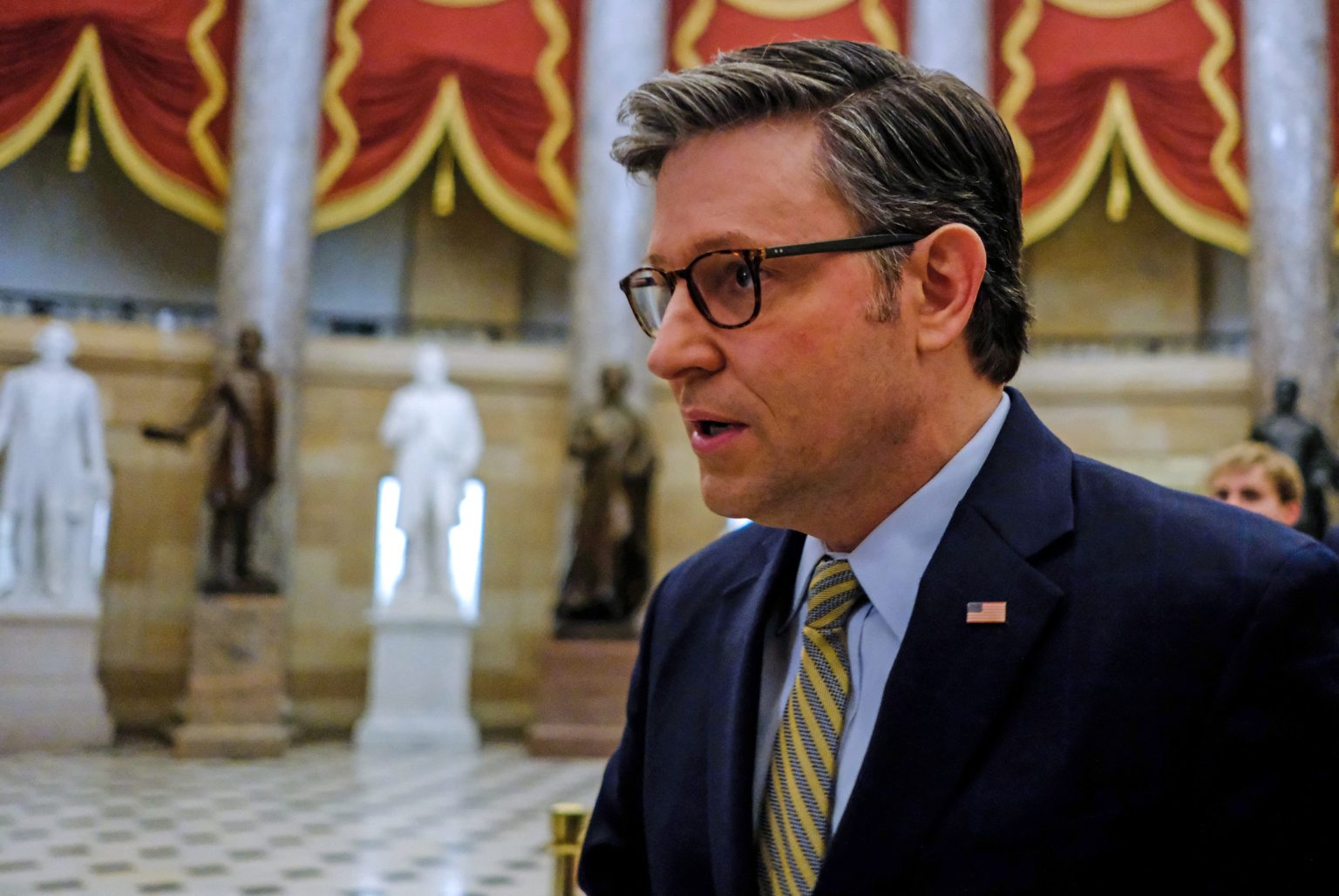The precarious position of House Speaker Mike Johnson and the looming threat of a government shutdown are intertwined in a high-stakes political drama playing out in Washington. Johnson, who faces a crucial leadership vote in January, narrowly secured passage of a temporary government funding bill, known as a continuing resolution (CR), on Friday, averting an immediate shutdown. However, this victory came at a cost, exposing deep fissures within the Republican party and raising doubts about Johnson’s ability to maintain control of his slim majority in the next House session. The CR’s passage, though a short-term relief, has done little to quell the underlying tensions and uncertainties surrounding government funding and Republican leadership.
The path to the CR’s passage was fraught with challenges, highlighting the deep divisions within the Republican ranks. An initial bipartisan version, backed by Johnson, failed amidst criticism from unexpected quarters, including Elon Musk and President-elect Donald Trump. A subsequent Trump-endorsed version also faltered, largely due to conservative resistance to a provision that would have raised the debt ceiling for two years. Ultimately, a stripped-down version, devoid of the debt ceiling provision, managed to squeak through the House, but not without significant opposition from within Johnson’s own party. This turbulent process underscored the fragility of Johnson’s support and the challenges he faces in navigating a deeply fractured Republican caucus.
The fragility of Johnson’s position is further underscored by the open dissent of prominent Republicans, including Representative Andy Harris, chairman of the influential House Freedom Caucus. Harris, who voted against the CR, publicly questioned Johnson’s leadership and hinted at the possibility of supporting an alternative candidate for speaker in the upcoming January vote. Harris criticized the bill for what he characterized as “unpaid for new spending,” echoing the concerns of fiscal conservatives who view such temporary spending measures as fiscally irresponsible. His public wavering on support for Johnson underscores the precariousness of the Speaker’s position and the potential for a leadership challenge in the new year.
This internal dissent within the Republican party is compounded by the razor-thin majority they hold in the House. With Democrats almost certain to vote against Johnson’s speakership, even a small number of Republican defections could jeopardize his chances of retaining the gavel. This reality leaves Johnson with little room for error and necessitates a delicate balancing act to appease both moderate and hardline factions within his party. The struggle to pass the CR serves as a stark reminder of the difficulties he faces in maintaining party unity and advancing his legislative agenda.
Adding to the complexity of the situation are external pressures, particularly from figures like President-elect Trump, who continues to wield significant influence within the Republican party. Trump’s criticism of initial versions of the CR and his endorsement of an alternative proposal further complicated the legislative process and contributed to the uncertainty surrounding Johnson’s leadership. This external influence, combined with the internal divisions within the Republican party, creates a volatile political environment that threatens to further destabilize Johnson’s position.
Looking ahead, the CR’s fate in the Senate and the subsequent possibility of a government shutdown remain uncertain. While the bill’s passage in the House averted an immediate crisis, its passage in the Senate is not guaranteed, and even if it passes, President Biden still needs to sign it into law. Should the bill fail to become law before the rapidly approaching deadline, the government will shut down, furloughing federal employees and potentially disrupting essential services just before the Christmas holidays. The political brinkmanship surrounding the CR underscores the deep divisions in Washington and the challenges of governing in a highly polarized environment. The coming weeks will be crucial in determining not only the future of government funding but also the fate of Speaker Johnson and the direction of the Republican party.

